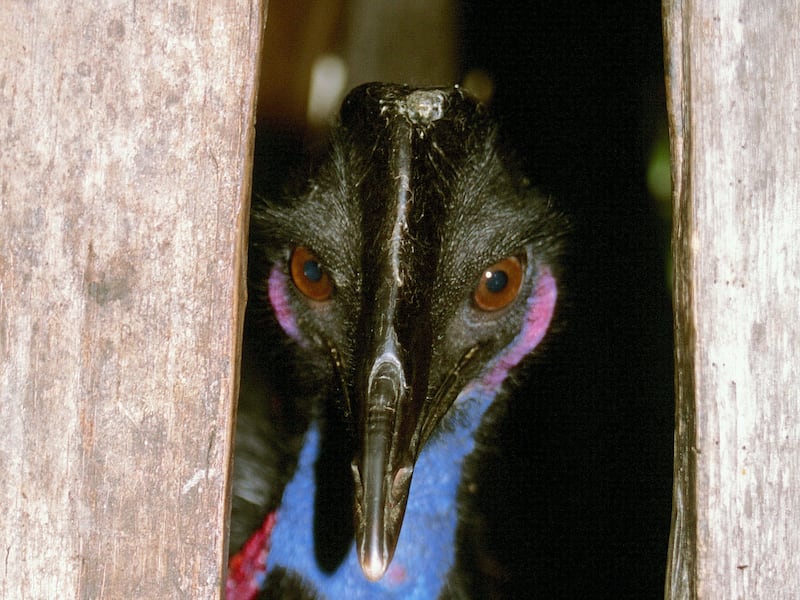A new study from Penn State suggests that humans might have raised the cassowary — an animal that scientists consider to be the most dangerous bird for its time.
- The study — which reviewed more than 1,000 fossilized eggshell pieces — found that “early humans may have collected the eggs of the large flightless bird before they hatched and then raised the chicks to adulthood,” according to CNN.
- The eggs fragments were found in New Guinea, which is north of Australia.
The animals — “territorial, aggressive and often compared to a dinosaur,” per CNN — don’t seem like a prime choice for a house pet. But that might have been the case.
- “This behavior that we are seeing is coming thousands of years before domestication of the chicken,” said lead study author Kristina Douglass, an assistant professor of anthropology and African studies at Penn State University, in a statement. “And this is not some small fowl, it is a huge, ornery, flightless bird that can eviscerate you.”
The research — which was published in Proceedings of the National Academy of Sciences — found that “the data presented here may represent the earliest indication of human management of the breeding of an avian taxon anywhere in the world, preceding the early domestication of chicken and geese by several millennia.”


